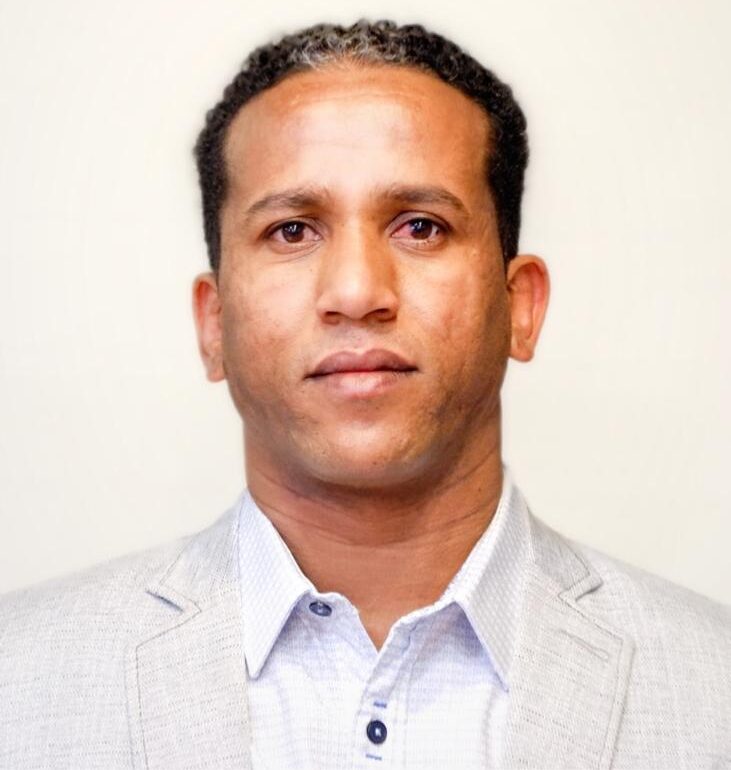Weaving a New World
- December 31, 2023
- Hyab Yohannes
- New Year Reflections
-

By Hyab T. Yohannes
2023 has proven to be challenging. Despite the receding presence of the Covid-19 pandemic, new, albeit familiar, crises have proliferated, namely wars and famine. War has become the norm across many parts of the globe – from the Horn of Africa, Sudan, and the Middle East to Afghanistan, Ukraine, and beyond. These and other regions are also facing catastrophic famine and the spread of diseases. News of wanton destruction of lives and livelihoods plays on our TV screens non-stop. We stare at the fates of children buried under rubble, left to die painful deaths, or born into death; families wiped out altogether by sophisticated weapons. We have seen mothers watch their children die from famine and preventable diseases. We have witnessed homes turned into ruins, and people displaced in precarious conditions of war. We are accustomed to hearing about people seeking refuge finding themselves either forsaken to perish, arbitrarily detained, or summarily deported. Amidst these calamities, humanitarian organizations roam the globe, providing sustenance to those still living, even as the inevitability of ultimate death looms. We also bear witness to a convergence of orders and disorders manifested through widespread protests across the globe. This sequence of events unfolds before our eyes as the crumbling of the so-called international norms becomes more and more evident. These realities of necropolitics – the politics and ethics of death – are increasingly making life appear expendable; joy remains out of reach, and existence appears empty.
The world may have abandoned those trapped in carceral spaces and war zones, but they will not leave us alone. They will linger in our shadows, rattling our foundations and perceptions, for as long as even an iota of humanity holds on. They will die before us. The children, amputated without anaesthesia, and those trembling in terror from death, destruction, and displacement, will continue to scream before our eyes. The withered bodies under the rubble and those buried in the desert sands will one day appear before us, their skeletons exposed. The wounded, the hungry, and the orphaned will cry out for help. The graves will speak to us in silence, and the decomposing bodies in the open will devour our conscience. The wounded and disabled will look at us in disbelief, while we will never dare to look them in the eye. Succumbing to these profound opacities and weariness, we will find ourselves continuously grieving the ungrievable and bearing the unbearable.
In the end, the dehumanising grammar of political leaders, their military commanders, and the frightening sounds of bombs will be silenced by their own echoes. No innocent ear or reasonable reason will entertain them. The remaining question will be: What happens next?
In the end, the dehumanising grammar of political leaders, their military commanders, and the frightening sounds of bombs will be silenced by their own echoes. No innocent ear or reasonable reason will entertain them. The remaining question will be: What happens next? After all, the remains of the dead will be buried with dignity, and those worried in their graves will rest in peace. The wounded and screaming will be relieved of their pain and grief as they gradually heal. The separated will be reunited, and the displaced will return to their homeland and rebuild their homes in the ruins. As they rebuild their lives once again, we will be ashamed to bow our heads and agree to share a world with the survivors. We will be invited to resign from our crippling privileges to meet the scarred face to face. As we succumb to our shame, the voiceless voices will reign as the voices of our time. But all of these are mere wishes, as our hearts remain hardened, reluctant to contemplate resignation, and to share a world with the racialised, othered, and pained.
May 2024 become a year of resignation, restoration, and sharing the world, all while remembering the irreversible losses. Dear reader, as you reflect on these disturbing realities, I invite you to weave a new world, even if it is imagined. Let it not be tethered to religious claims, entrenched ideologies, or power struggles, but rather founded on the principles of coexistence, restoration, and irreducible relations.
Happy New Year!
